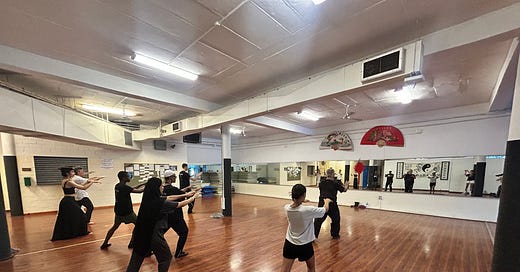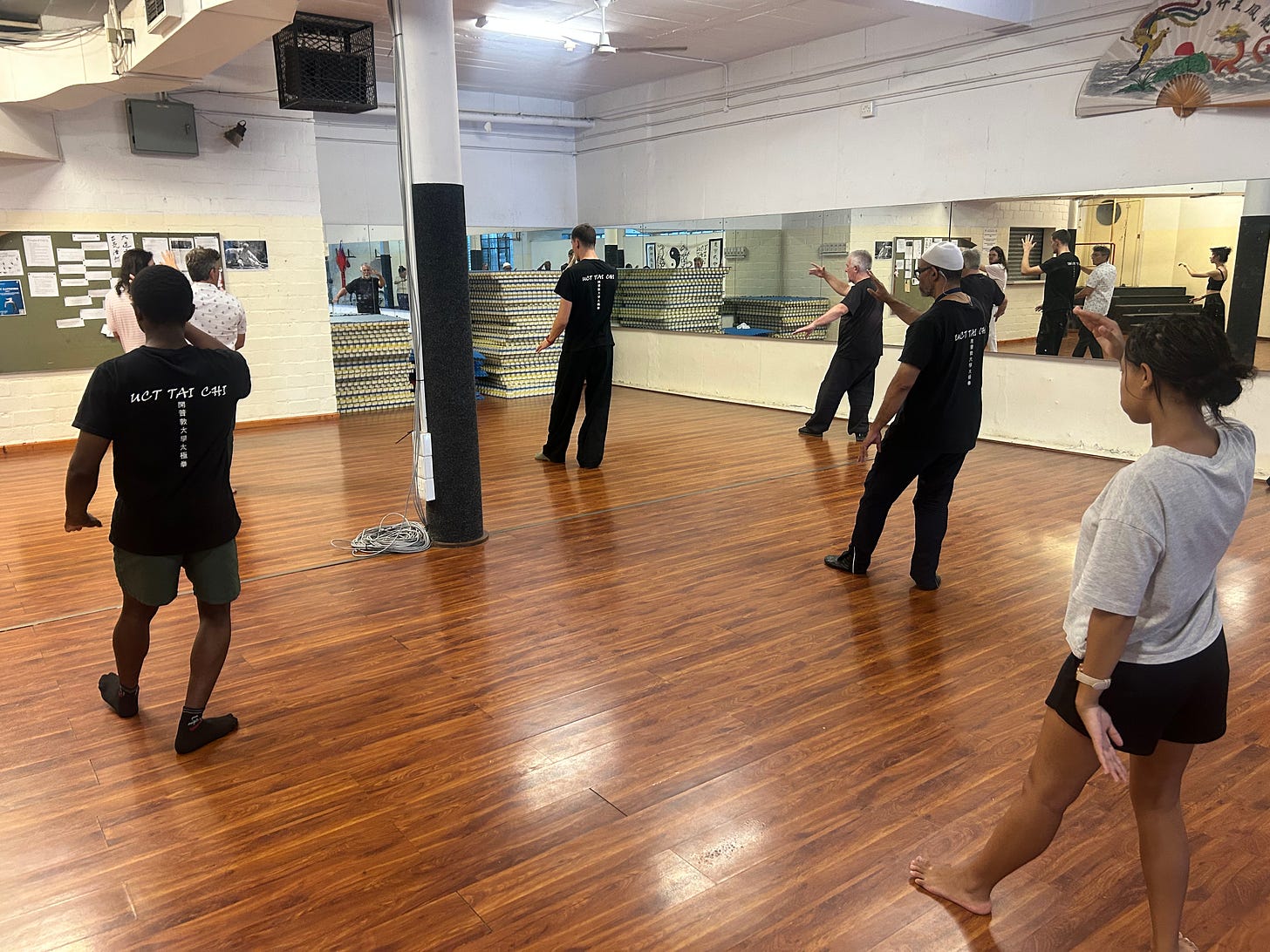On Saturday, 15 March, UCT Tai Chi held its second workshop of 2025. In the UCT Sports Centre’s martial arts room, the club’s committee and Sifu Chris Hanche welcomed new, returning, and prospective members for a gentle morning of physical exercise, breath work, and mental wellness.
The workshop was instructed by Chris Hanche, the class’s Sifu (meaning “master” or “teacher”) and current Tai Chi coach for both UCT Tai Chi and The Martial Arts School in Observatory. It started with Qigong practice, a simpler set of movements that builds energy through balance and breath work and often operates as a kind of warm-up to a Tai Chi class.
Both Tai Chi and Qigong are based on the elemental idea of “chi” or “qi”, which refers to the life energy flowing through all living things. Both disciplines are attempts at balancing and ensuring the “proper flow” of your body’s chi.
The class became more dynamic as the movement transitioned into foundational Tai Chi practice. Bodies moved in a slow-motioned unison as Sifu Chris introduced and added new movements to the repertoire the club has been building since the start of the semester. As the practices progress over the course of the year, these movements will combine into a fully-fledged Tai Chi form. These forms are routines that utilise carefully balanced steps timed to breaths to tend to stressors of the body and mind.
Partner work followed, demonstrating Tai Chi’s self-defence applications. Pairs emulated hand-to-hand combat, physically feeling the manipulation of energy through simply unclenching fists and quite literally letting go. This was a part of the well-rounded approach seen in the workshop’s facilitation, ensuring the club went home having learnt how to practice Tai Chi and about the origins and intentions of the exercise.
Despite being listed as a martial art, Tai Chi is often referred to as “moving meditation.” It involves focusing and relaxing one’s mind through sets of motions and controlled breathing. It has been known to improve strength and flexibility and works well as an alternative cardio workout.
As the morning drew to a close, club committee member Lawrence Hawke asked if he could lead the class in a cool-down exercise referred to as “closing the five gates,” a request which stirred experienced members of the society. This exercise was common practice whilst the group was under the leadership of Peter Williamson, or “Coach” as members often called him in the familial setting of the Martial Arts Room.
Williamson passed away late last year, and his impact is still clearly felt in the club. He left a letter in which he pleaded that its members “do not allow the club to disappear,” a request respectfully honoured by his students and exemplified at the workshop held on Saturday.





